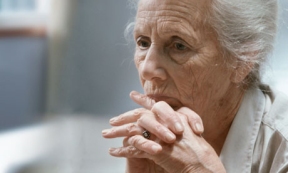
For patients facing serious illnesses, dying isn’t necessarily the thing they dread the most — according to a new survey, a majority of patients consider bowel and urinary incontinence and having to rely on a breathing machine to be fates worse than death. In the survey, researchers asked 180 patients with serious illnesses if they considered ten different health states, ranging from being unable to get out of bed to being in a wheelchair, to be better or worse than dying. The results were published on Monday in a research letter in the journal JAMA Internal Medicine. Avoiding death is often the main goal for doctors and patients, the researchers, led by Dr. Emily Rubin, a fellow in pulmonary and critical-care medicine at the University of Pennsylvania, wrote in the letter. But “despite this general preference,” studies have shown that a large minority, and in some cases a majority, of healthy patients consider states such as severe dementia to be “worse than death,” the researchers wrote.

For each of the health states in the survey, the researchers asked the patients to rank the condition on a five-point scale, as either worse than death, neither better nor worse than death, a little better than death, somewhat better than death, or much better than death. All of the patients in the survey were ages 60 older and had serious illnesses, including advanced forms of cancer and heart failure, according to the researchers. They found that more than half of the patients considered bowel and bladder incontinence and relying on a breathing machine to live to be health states worse than death. The researchers noted that while there are some limitations to the study (for example, it was carried out in just one health care system), the findings suggest that more research is needed to improve patient outcomes. The patients completed the survey between July 1, 2015, and March 7, 2016.












